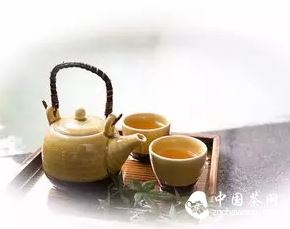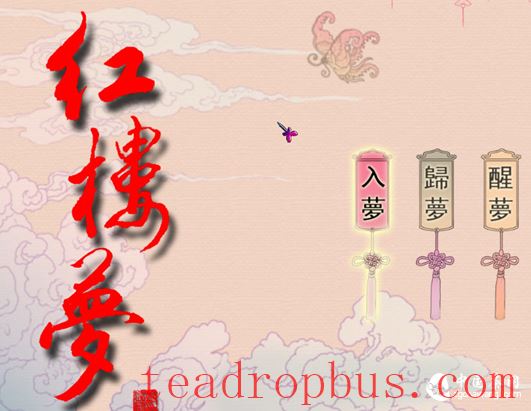Tea, be it the bitter fragrance of raw Pu'er, the rich flavor of ripe Pu'er, the lightness of Green Tea, the aroma of flower tea, or the richness of Black Tea, all depends on the water's infusion and release.

A stranger sent me some ancient tree tea, a raw variety.
In an exquisite small box, on golden paper, three tiny spherical tea cakes sat round and smooth. Gently unfolding the cotton paper, the tea leaves were clearly visible, with hints of Silver downy tips, shimmering with a faint luster.
The water on the stove came from a mountain spring in southern Anhui, sealed in a bucket for half a year but still as clear as when it was collected. It is often said that running water never goes stale. She remained confined within her small space, steadily silent, without changing at all. I was greatly surprised by her steadfastness, perhaps because of her inherent purity that allowed her to remain unchanged.
The importance of water for brewing tea stems from the classic novel, Dream of the Red Chamber.

In the chapter “The Fragrant Snow of Plum Blossoms Brewed at Longcui Hermitage,” the otherworldly Miaoyu collected the tranquil snow from plum blossoms, storing it for five years while it remained crystal clear. What kind of tea would be fortunate enough to blend with it and create a fragrant harmony? As a result, even the image of Baoqin picking red plums is deeply etched in my mind. Every winter, when snow blankets the south, turning everything into a silver world, I would go to the small garden among the plum trees and gather the crystalline snowflakes atop each petal, watching them melt into teardrops. I would muse about the characters in the book, much like this snow water, lacking a true understanding of tea, their beauty wasted.
Thinking about it, compared to the myriad forms of tea, I might understand water better.
One winter, I sought out Dong Xiaowan at the Water-Boundary Garden, a clever and kind-hearted woman who shared a similar love with Jia Baoyu — tea and rice.
“She had a taste for simplicity, with no fondness for rich food. For every meal, she would warm a small pot of tea to rinse her rice, accompanied by a few stems of water vegetables and aromatic soybeans, which would suffice for one meal.” I was captivated by how she turned the mundane aspects of daily life into something so romantic and beautiful, full of sentiment.
The water reached the bubbling stage, and I reined in my thoughts, warming the cup and rinsing the tea. The tea pearls, nourished by the water, gradually softened and unfurled, gently dancing. A light orange hue tinged the pot of clear water, gradually turning into a bright yellow.
I watched their graceful movements, contemplating the encounters of people, much like the tea and water, a matter of fate. Water without tea remains shallow. Tea without water has suffered in vain through intense heat. But no matter what, they eventually meet, a bond that cannot be undone. May it be that when “the golden wind and jade dew meet,” the water absorbs the fragrance of the tea, and the tea gains nourishment from the water, together creating a beautiful symphony.
Selecting a white translucent porcelain bowl, I slowly poured in the clear tea broth, lifting it to my nose where a refreshing aroma opened my nostrils, reaching my spirit directly.
Taking a small sip, I almost spat it out—it was bitter! Holding back, I swallowed, and my mouth was filled with bitterness. Yet there was a hint of secret joy—this heavy sensation was like time itself, fitting my complex mood at that moment. And with the rising steam carrying the bitter fragrance of the tea, it seemed to hint at the wonders hidden deep within time.
Sipping lightly, savoring deeply. The second infusion had the darkest color, and the flavors layered in my mouth, intertwining. After the third infusion, setting down the cup, the bitterness gradually faded away, replaced by a gentle sweetness that emerged slowly from my throat and under my tongue, growing full yet not overpowering. Suddenly, I realized that this experience of bitterness giving way to sweetness mirrored the deepening of long-standing affection—the deepest of connections also require careful nurturing. Just like this tea, whether the bitter fragrance of raw Pu'er, the rich flavor of ripe Pu'er, the lightness of green tea, the aroma of flower tea, or the richness of black tea, all depend on the water's infusion and release.
In truth, we do not understand tea; only the water truly understands it.